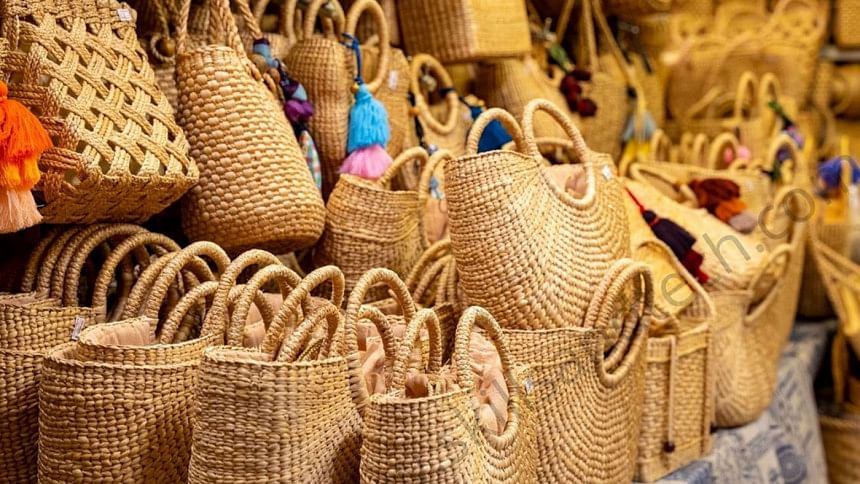No respite for jute goods makers from export fall

Bangladesh's exports of jute and jute goods have been falling continuously as many buyers have switched to synthetic and regenerated cotton yarn due to high prices of the golden fibre in the domestic market.
In the absence of adequate domestic demand, the country, the second-largest producer of jute after India, is reliant on global buyers for jute yarns, sacks, and bags.
However, shipments of jute and jute goods have been falling since exporters logged $1.16 billion in fiscal year (FY) 2021-22.
Earnings from the sector fell 6 percent year-on-year to $925 million in FY24.
In the July-September quarter of FY25, exports of raw and processed jute fell 20 percent year-on-year to $178 million, according to the data unveiled by the Export Promotion Bureau.
In the absence of adequate domestic demand, Bangladesh is reliant on global buyers for jute yarns, sacks and bags
Raw jute exports fell 31 percent in the period while shipments of jute yarn and twine, the biggest export item in the sector, declined by a fifth.
Industry stakeholders said the demand for jute yarn began to decline after the Covid-19 pandemic, when prices of locally grown raw jute shot up to Tk 5,500-Tk 6,000 per maund (around 37 kilogrammes).
"Our closest competitor is polypropylene yarn and demand for that has increased among buyers. This is also because demand for recycled carpet has increased in the West," said Md Mamunur Rahman, director of Rahman Jute Spinners Private Ltd.
Besides, the use of regenerated cotton yarn in carpet-making has seen an uptick as rugs made of cotton yarn are easy to fold.
Locally, an unhealthy competition to grab buyers among jute millers worsened the situation.
Of late, spiralling prices of raw jute in the domestic market have also cast a shadow over export prospects.
Helal Ahmed, chief operating officer of Janata-Sadat Jute Mills, one of the leading jute exporters, said inclement weather affected jute cultivation.
The Department of Agricultural Extension (DAE) estimates that Bangladesh's jute production fell to 75.65 lakh bales in the FY25, down 18 percent year-on-year.
Alongside that, stockists have become active in buying raw jute. So, prices jumped to around Tk 3,800-Tk 4,000 each maund, he said.
"No miller has been able to buy jute as prices of jute goods have not risen in the international market," he said.
"Many mills have suspended production. A number have reduced production drastically."
Ahmed said increased freight costs also affected exports.
"We have to ensure domestic use of jute to protect the sector," he said.
Rahman said the implementation of the law for mandatory use of jute sacks and bags for certain commodities, including rice, is urgently needed to protect the sector, which employs four crore people directly and indirectly.
"The jute industry's situation is dire," he lamented.
"We are already at the bottom of export earnings. The problem now is that foreign buyers want to purchase but we cannot accept orders because our cost to make yarn has shot up due to soaring prices of raw jute."
Bangladesh produces roughly 80 lakh bales of raw jute annually, with jute millers and spinners processing 80 percent to make sacks, bags, yarn and twine, mainly destined to be exported.

 For all latest news, follow The Daily Star's Google News channel.
For all latest news, follow The Daily Star's Google News channel. 



Comments